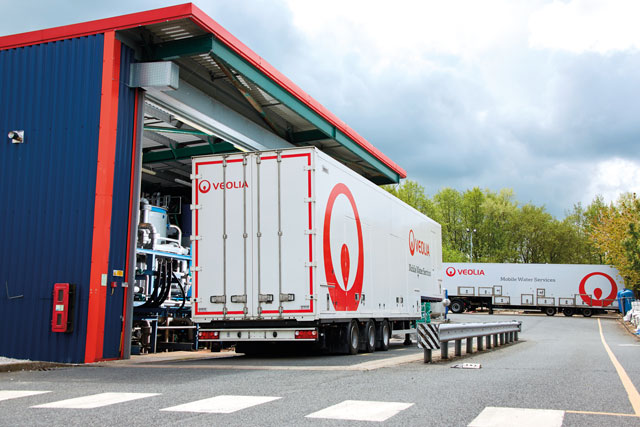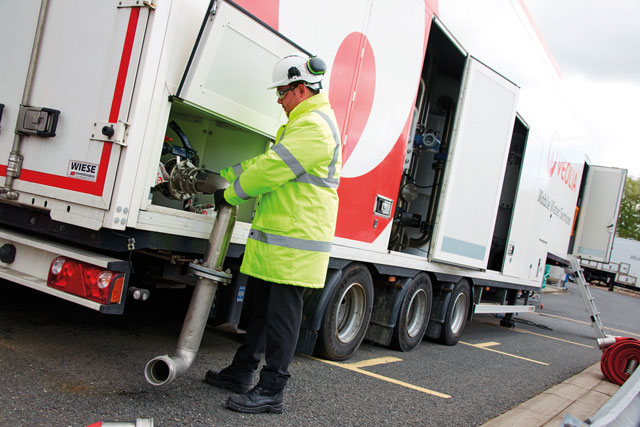
Engineering houses, EPCs and plant managers face challenges in project management in particular related to reliable treated water supply. Thomas Minor, Business Development Manager for Mobile Water Services points out that whether commissioning a new facility, ensuring continuous operations during maintenance or turnarounds or even managing a decommissioning project, the reliability of the supply of treated water can be crucial.
Mobile water treatment systems can be deployed to help speed up a project if deadlines are threatened – saving costs and minimising delays. It may be possible to produce additional secure treated water to meet challenging short term requirements or ensure that production is maintained without downtime. Finally, temporary water treatment solutions can reduce turnaround time.
We now explore three applications with practical examples to demonstrate the benefits in considering mobile water services to support water treatment projects.
Support for commissioning new facilities and assets start up
Typical applications include water system flushing, condenser cleaning, pipework and tank hydro testing, steam blows through and project delay period coverage.
An EPC was involved in the construction and commissioning of one of the biggest power plants in Poland. The client contacted Mobile Water Services to support the plant start-up with 100m./h of demineralised water. During a plant cold start-up additional volumes of make-up water may be required in excess of the capability of the installed plant. This short term requirement, if assisted by the use of a mobile plant, will speed up the start-up phase and take the client to full scale operation quickly saving lost hours of production.
Mobile Water Services provided mobile filtration units, a mobile reverse osmosis asset, a mobile deionisation unit, and a mobile pump. This adaptable solution provided demineralised water in compliance with the client’s treated water requirements and contractual delivery date.

Continuous operations of assets during planned maintenance and turnarounds
Applications include resin replacement, pressure vessel maintenance, controls upgrades, reverse osmosis membrane cleaning or replacement.
A service company in Germany, provides production facilities and utilities for its customers in a chemical park. The individual plants in the park, are supplied with demineralised water by the client, encountered problems with the raw water filtration which led to considerable operational issues. Mobile Water Services quickly mobilised several mobile reverse osmosis assets and three mobile deionisation, two mobile pumps, and two mobile filtration assets.
The solution produced 200 to 250m./h of treated demineralised water in accordance with local standards in order to meet the treated water demands required for the chemical park’s customers without interruption for a period of three months. This short-term intervention offered a reliable and secure back-up with the production of deionised water 24/7 in continuous operation.
Late life management and planned decommissioning
Applications to cover changes in feedwater quality and quantity and treated water demands.
In the UK, a power plant was being decommissioned. Originally during production the site consumed some 910m./day of demineralised water for steam raising and cooling but, once production ceased this reduced to about 26m./day. This meant that the on-site demineralisation plant was larger than required and costly to maintain, so the client wanted to decommission and remove it.
But they still needed a supply of demineralised water. Mobile Water Services’ team provided the demineralised water requirement at the site using a trailer-mounted mobile demineralisation plant.
This provided ion exchange demineralisation but at a much reduced flow. The mobile asset was remotely monitored by Veolia and was changed every month. The plant operators calculated that this reduced the costs by 50% compared with operating the on-site plant and also allowed early removal of the redundant demineralisation plant.
Conclusion
It is important that project managers consider the benefits of temporary water treatment plants in commissioning, maintenance, and decommissioning activities, as it is not uncommon for these processes to demand more water than originally anticipated.
As awareness grows, we can expect to see more mobile water services being implemented to support planning and helping companies to deliver projects on time and on budget while maintaining resilient and effective water treatment plants in the process.
www.mobilewaterservices.com | mobilewaterservices@veolia.com | t: 0203 567 7548

